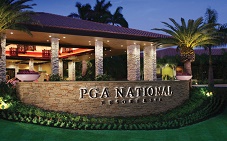 NATIONAL REPORT—Two years after the final standard of the nine APEX/ASTM Environmentally Sustainable Meetings Standards—the one focusing on accommodations—was published, and more than three years after the first eight standards were released, adoption of the standards has been mixed. At press time, just one accommodation—the PGA National Resort and Spa in Palm Beach Gardens, Fla.—had achieved certification to standard E2772, the Specification for Evaluation and Selection of Accommodations for Environmentally Sustainable Meetings, Events, Trade Shows, and Conferences. The resort also achieved certification to the ASTM Standard pertaining to the Evaluation and Selection of Venues for Environmentally Sustainable Meetings, Events, Trade Shows, and Conferences (E2774). Three of the standards have yet to see a certification—ones pertaining to exhibits, transportation and on-site offices. According to the Green Meeting Industry Council (GMIC), which publishes a registry of suppliers that have achieved APEX/ASTM third party certification, about 30 organizations have achieved or will soon achieve some level of certification. The majority of those—at least 13—have been certified to E2774.
NATIONAL REPORT—Two years after the final standard of the nine APEX/ASTM Environmentally Sustainable Meetings Standards—the one focusing on accommodations—was published, and more than three years after the first eight standards were released, adoption of the standards has been mixed. At press time, just one accommodation—the PGA National Resort and Spa in Palm Beach Gardens, Fla.—had achieved certification to standard E2772, the Specification for Evaluation and Selection of Accommodations for Environmentally Sustainable Meetings, Events, Trade Shows, and Conferences. The resort also achieved certification to the ASTM Standard pertaining to the Evaluation and Selection of Venues for Environmentally Sustainable Meetings, Events, Trade Shows, and Conferences (E2774). Three of the standards have yet to see a certification—ones pertaining to exhibits, transportation and on-site offices. According to the Green Meeting Industry Council (GMIC), which publishes a registry of suppliers that have achieved APEX/ASTM third party certification, about 30 organizations have achieved or will soon achieve some level of certification. The majority of those—at least 13—have been certified to E2774.
“[The standards] been very well adopted by the venues and conference centers,” says Kelly M. Schwartz, CMP, Director of Global Programs, GMIC. “We feel very good about the supplier side taking off. We are trying to provide education on the event and planner side.”
Karl Pfalzgraf, Practice Leader for iCompli, the organization that carries out certifications for the APEX/ASTM Environmentally Sustainable Meetings Standards, says one of the challenges initially with the standards was that they were not created for certification. “We had to go back to GMIC to ask what they are looking for,” he says.
“Standards in general take time to get traction,” Pfalzgraf adds. Venues have been the first to certify, he says, because a lot of them have been implementing sustainability initiatives for years. “Once you see a venue get certified, it creates competition and pressure,” he says.
Pressure Needed from Meeting Planning Side
What needs to happen to energize the adoption of the certification program, Pfalzgraf says, is to get meeting planners to ask about the standards and even mandate them. “Meeting planners need to say you have to adopt the standards,” he says. “You need the suppliers to get engaged, too.”
In October 2013, the Green Meeting Industry Council announced and launched a campaign called “Ask For It!” in support of the APEX/ASTM standards. The campaign is targeted at planners, encouraging them to ask suppliers for sustainable practices. That campaign continues today. GMIC’s Schwartz says Ask For It! is pushed at GMIC’s annual conference and at IMEX America.
Costs vary depending on the standard, Pfalzgraf says, but range from about $2,500 to $6,000 for a two-year certification. The cost to recertify after two years is half of the initial cost. When asked whether certification includes an on-site inspection, Pfalzgraf said, “We found it was not really necessary. The cost could get to the point where it is not sensible [to certify].” Pfalzgraf adds that for any certification program to be successful it has to have rigor, be attainable, and be priced right. In addition to the iCompli fee, GMIC charges a $300 registration fee. Once certified, a project is posted on GMIC’s online registry. Those interested in obtaining a certification are also required to purchase the standard. The standards are available at the ASTM International site for $168 for all of the standards or individually for as low as $41.
Shawna McKinley, Director Sustainability for MeetGreen, an organization that supplies conference and event management assistance, sustainability consulting services, and training and education, says that as a whole the standards are “quite complicated.” “It is a pass/fail system,” she says. “You can be at 99 percent and you are not past the finish line.”
Fairly Quick Turnaround Time
Those interested in obtaining certification are required to complete a form that incorporates a standard’s criteria. Evidence—documentation—must be presented that shows compliance to the standard. “Materials are submitted to an auditor,” Pfalzgraf says. “We typically will have some questions. We may want clarification. Then we will certify. The fastest we can turn an application around is a couple of weeks. The longest is six weeks. We are not trying to fail anyone. We try to get people to the finish line. The standards are really driving improvement.”
Kathy McGuire, Executive Assistant, Manager, Sustainable Development, LEED Green Associate, PGA National Resort & Spa, says, “The process of working with iCompli was very simple. Within a couple of weeks we were verbally told we had the certification.”
McGuire says that when the standards were first published, PGA National Resort & Spa bought all nine of them. “I went through them with a fine-tooth comb. I went through each of the categories and bullet-listed what was in the standards. I did all of this before iCompli came out with a checklist of its own. Their checklist is very straightforward.” It took McGuire and her associates about 2.5 months to put together the documentation for the accommodations certification.
“We worked at it fairly religiously,” she says. “I can see how it could be very challenging if you did not have someone to focus on it. It was a leap of faith for us.” McGuire adds that she has had three requests from meeting planners in the last 30 days asking for green attributes, so the certification could pay off fairly quickly.
In general, McGuire says, meeting planners are not asking for the standards but she is hoping her property will benefit by being a “first mover or first adopter.”
Glenn Hasek can be reached at editor@greenlodgingnews.com.






